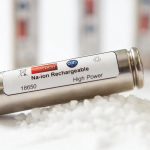Accueil » Non classifié(e) » The scam of « certifications » from certain Lithium Iron Phosphate (LFP) battery brands
Protected: The scam of “certifications” from certain Lithium Iron Phosphate (LFP) battery brands
Pinterest
Twitter
Facebook
LinkedIn
Email
Tumblr
- Filed Under: Non classifié(e)


